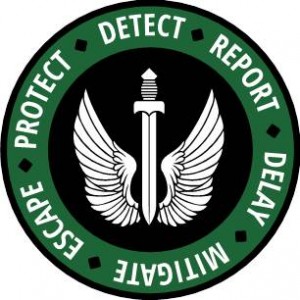
TIME TO TEACH™ CLASSROOM MANAGEMENT
This full day course offers strategies for classrooms, buildings and districts to change the approach to discipline to save instructional time, reduce referrals and help students learn to change their behaviors rather than simply punishing them. From Diffusers, Unconditional Positive Regard and the Refocus™ Method, educators learn to increase instructional time and reduce stress in their classrooms. 1 to 3 graduate Credits available for this class.
- Raise standardized test scores for all students
- Decrease discipline challenges and focus on teaching Teach MORE of your curriculum each year
- Develop classroom rapport and expand parental involvement
- Empower students to learn appropriate classroom behavior
- Eliminate multiple warnings and repeated requests
to see a Syllabus for the course click HERE

TIME TO TEACH™ DIFFERENTIATED INSTRUCTIONAL STRATEGIES FOR STUDENT MOTIVATION AND ENGAGEMENT
A full day of training on strategies specifically designed to motivate and engage your students. Story-Telling, Synectics, Hot Seat and many other methods are covered. Teachers walk away with strategies that can be instantly added to existing lessons. 1 to 3 graduate Credits available for this class.
- Learn strategies that meet students where they are and lead them to where they need to be!
- Capture attention, promote deeper learning, & engage students’ emotions Rediscover the power of storytelling to draw students into your lessons!
- Gain tools to keep students on their toes & increase self-efficacy
- Tap into intrinsic motivations by connecting to student interests.
- Use movement to generate and maintain positive feelings about learning.
to see a Syllabus for the course click HERE
AWR 148
Crisis Management for School-Based Incidents: Partnering Rural Law Enforcement, First Responders and Local School Systems
Course Description
This eight-hour awareness-level course for school administrators and emergency responders will educate rural law enforcement personnel as well as school administrators and staff to effectively respond to an emergency involving a school building or an entire school system. The training will provide representatives of rural law enforcement departments with a foundation of knowledge and skills that will enable them to progressively establish a school-based emergency response plan and crisis management team through information sharing and training. Register for a class by selecting a class date from the Training Schedule, click on the Registration link above the course description to access a registration form for that class. Request a new class to be scheduled in your area by submitting a Request a Course form.
Course Prerequisites
*Participant must be a U.S. citizen or a foreign national approved by DHS.
MGT-417: Crisis Management for School-Based Incidents for Key Decision Makers
Course Description
The purpose of this 2 day management/planning level course is to provide the operational-level details to support many of the topics covered in the U.S. Department of Homeland Security (DHS) approved AWR 148: Crisis Management for School-Based Incidents – Partnering Rural Law Enforcement and the Local School Systems awareness-level course. Rural schools, law enforcement, other emergency responders, and community stakeholders are often limited in their access to resources, so it is imperative that all potentially affected parties collaborate in planning, preparation, communication, response, and recovery in the event of a school-based incident. Moreover, these affected parties must come together to practice their interoperable skills through drills and exercises to ensure the strategies in place provide for an effective crisis response and collaborative recovery. With the intent of building upon the foundation of the AWR 148 course and utilizing an all-hazards approach, this two-day course will provide content instruction, develop concept-specific skills, and provide opportunities for law enforcement, school personnel, and community stakeholders to collaboratively apply the course objectives in scenario-based applications. Topics covered in this course include: * All-Hazards Planning and * Preparedness * Vulnerability Assessments * Threat Assessment Management * All-Hazards Response * All-Hazards Recovery * Scenario-Based Activities Register for a class by selecting a class date from the Training Schedule, click on the Registration link above the course description to access a registration form for that class. Request a new class to be scheduled in your area by submitting a Request a Course form.
Course Prerequisites
*Participant must be a U.S. citizen or a foreign national approved by DHS. Recommended (not required): IS-100: Introduction to the Incident Command System (ICS), IS-700: An Introduction to the National Incident Management System (NIMS), IS-800: National Response Framework (NRF), An Introduction, IS-200: Basic Incident Command System for Initial Response, AWR-148 or AWR-148-W: Crisis Management for School-Based Incidents: Partnering Rural Law Enforcement, First Responders and Local School Systems. – IS 200.B – ICS for Single Resources and Initial Action Incidents
Safety and Security Habits (SASH) for Educators
-
Designed for all educators and support staff to understand the basics of personal protection and how that translates into the school. This is an 8-hour course that comes with a 100-page handbook.
- This is the perfect course for those wanting to give the basics, in detail, to all their staff. The first half of the course talks about concepts of personal protection: Awareness, the Law of Primacy, Cover, Concealment and movement.
- The second half is designed to support schools who use the “I Love you Guys” Standard Response Protocols (SRP).
- The personal responsibility of staff during Hold, Secure, Lockdown, Evacuate and Shelter.
- The proper method of evacuating and utilization of their go kits.
- Levels of awareness and what to look for when travelling, visiting public spaces and even online.
-
Vulnerability Assessments

- I provide a multidisciplinary approach to vulnerability assessments from physical security to procedures designed to manage visitors and mitigate intruders or other threats. The take an entire school day while school is in session. I do not run drills or interrupt the school day, but will observe your procedures for receiving students, controlling visitors, watching your campus (cameras, sweeps etc.) and how the end of day procedures work.
- The final report comes with a graduated list of suggestions to improve your school’s security signature without making it look or act like a prison. This will include changes that can be done almost immediately (often for free) to improve your safety. Other changes will also be listed in order of importance and cost.
-
Tabletops and Drills
- This program targets your individual team to give them intensive training so they can continue to review and assess potential threats and create your own responses to emerging situations.
- SASQ Method of Threat Assessment and Evaluation
- Development of Harbor Points
- Establishing communication protocols for emergencies
- Establishing Relationships with local first responders
- Prepare protocols and SOPs for emergency operations and Recovery operations after an event
- This program targets your individual team to give them intensive training so they can continue to review and assess potential threats and create your own responses to emerging situations.
We can also customize your program with your specific needs. As we know, each school will have its own set of limitations, potential threats and ability to react to them. With this three-pronged approach we help schools intelligently and systematically identify what are potential threats and develop onsite protocols and habits to help eliminate or mitigate them.

